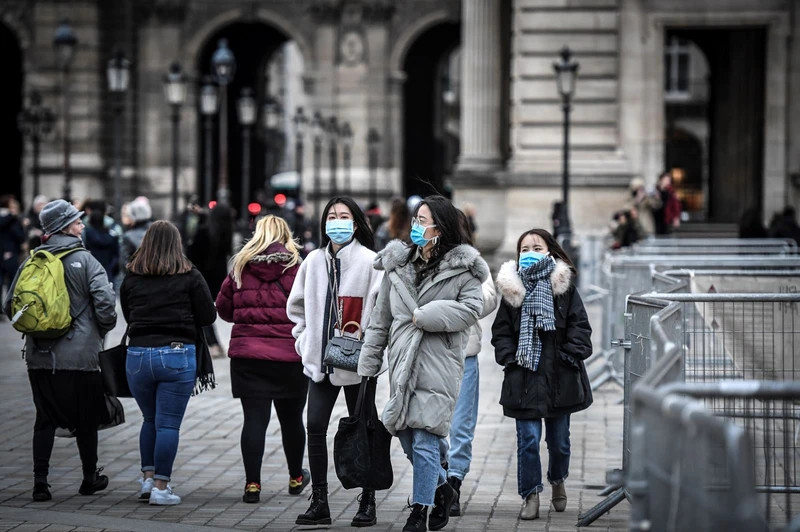In the final days of 2023 and early 2024, many countries received sad news about the COVID-19 pandemic. According to the data from the World Health Organization (WHO), about 10,000 deaths from COVID-19 were recorded in the last month of 2023.
WHO Director-General Tedros Adhanom Ghebreyesus said that the transmission of the SARS-CoV-2 surged in December 2023 due to increased contact activities during the Christmas holiday. Tedros Adhanom Ghebreyesus stated that although 10,000 deaths a month is much less than the peak of the pandemic, this number could have been lower if we had taken precautions.
According to the US Centers for Disease Control and Prevention (CDC), the JN.1 variant, a descendant of BA.2.86, accounts for about 62% of COVID-19 cases in this country. The JN.1 variant is also the dominant variant in Europe and is rising strongly in Asia.
In Italy, the National Institute of Health (ISS) said that the number of flu and COVID-19 cases in the country jumped to a record high in the last two weeks of 2023. The disease incidence rate was 17.5 cases per 1,000 people in the last week of 2023 and 17.7 cases per 1,000 people the previous week.
Spain and Portugal also witnessed an increase in the number of cases of flu, COVID-19, and other respiratory infections. The COVID-19 pandemic situations in Indonesia, Malaysia, and Thailand are also complicated, mainly due to the appearance of the JN.1 variant.
The US CDC said that JN.1 is more transmissible than other variants, meaning it’s better at avoiding the human immune system than other circulating variants. In fact, JN.1 has quickly dominated in many countries where it has been discovered. In addition, the risk of COVID-19 infection in the community has recently been high due to increased tourism and contact activities during the holidays. The season transition period also easily weakens the immune system.
As the world moves from an emergency mechanism to long-term prevention and control of COVID-19, WHO is calling for the maintenance of testing, genetic sequencing, and reporting on the disease. Governments of many countries, such as Greece, Singapore, Indonesia and others, are urging people to get vaccinated against flu and COVID-19. Bolivia has restored strict health measures, including mandatory mask wearing in schools. Mandatory mask wearing has also been a requirement in hospitals and medical facilities across Spain to protect public health.
The raging of the COVID-19 pandemic in recent years has shown the weakness of the global health system, highlighted by unfair access to health services. The losses caused by this epidemic have helped the world clearly realise the importance of solidarity, sharing, and cooperation.
Recently, the Global Alliance for Vaccines and Immunization (GAVI) announced a plan to promote vaccine production for Africa to address inequality in vaccine access, which created difficulties for the continent during the COVID-19 pandemic. GAVI also approved a plan worth about 290 million USD to meet the need for routine vaccination for children — which was interrupted by the pandemic — and an initial response fund worth 500 million USD to help ensure immediate funds to proactively respond to new disease outbreaks.
The threat from the COVID-19 pandemic is always present because the SARS-CoV-2 virus is constantly changing. According to experts, the world may not yet have faced the most transmissible variant while immunity from COVID-19 vaccines has been declining significantly. This requires countries to ensure heightened vigilance and remain prepared for all epidemic scenarios.
















